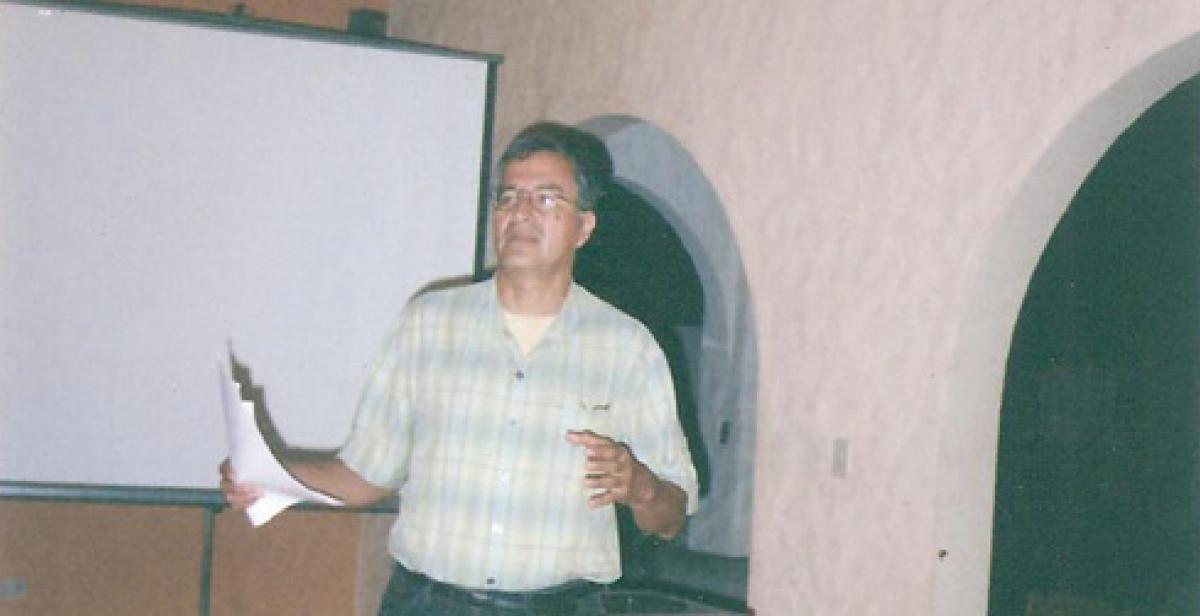Hans Joel, who is German-Colombian, was a Progressio development worker in El Salvador with Fundación Maquilishuati (FUMA) from November 2002 to November 2010.
What have you done since leaving Progressio and what do you do currently?
I went to Colombia and started work in the area of coffee production at several plantations in the Sierra Nevada de Santa Marta. My work also concerned crop diversification and the formation of a network of producers. All this was with a view to adapting to the issue of climate change that we are facing, the consequences of which are already evident.
Please describe your role and the partner organisation that you worked with as a Progressio development worker
The project I was involved in as a development worker is located in the north of Chirilagua and south of El Carmen and San Miguel. The project was focused on training leaders to analyse and resolve the environmental problems that they were experiencing in their local area. Within this framework, the communities recognised the importance of constructing a network among themselves to establish local and national proposals regarding the wetlands. Risk management in the area was also strengthened.
What inspired you to become a development worker?
The opportunity to exchange experiences with colleagues from different organisations and the communities who I worked with throughout my time in El Salvador.
What struck you most about Progressio’s development worker model/approach?
Progressio’s experience of supporting projects, and because Progressio is an organisation dedicated to reducing poverty and the vulnerability that intensifies this.
What did you enjoy most about your role, and of your experience as a development worker?
Helping to resolving some of the problems at the Olomega lagoon, as well as contributing to managing relations between key institutions such as the Ministry for the Environment and the local council. Equally, working with the communities was very worthwhile and it meant some elements, which were not recognised in the formal meetings and visits, were evaluated.
What were some of your main achievements while working as a development worker?
FUMA's strategy to consolidate it's work in the community by ensuring local people develop skills and the capacity for self- management. This allowed them to make decisions for their own communities in direct collaboration with both local and national state institutions.
And what were some of the key challenges and lessons learnt?
The comprehensive management of natural resources, in particular at the Olomega lagoon. This is of vital importance as many families make a living from the lagoon using traditional fishing methods. There are also others rely on the lagoon as a source of water for irrigating their crops and for their livestock (cattle). This was a great challenge as it is a problem that has consequences for the local area and the region. By strengthening the organisation of these communities we were able to examine in greater detail medium and short-term proposals for intervention in the area.
In terms of lessons learnt: to maintain constant communication with the other partner organisations and keep the communities where the project is taking place informed about the process and the steps being taken.
Did this experience change you as a person in any way?
Any experience will change a person in some way; you are always learning. The positive things about my experience were that it was very productive and fulfilling; I learnt new things and met wonderful people who wanted to improve their living conditions. To put it simply, the experience was a very positive one for me.
What advice would you give to someone who is thinking of becoming a development worker?
You must learn about the place- both the country and the project you’ll be working on. If you are lucky you can find this out through other development workers, so that later there aren’t frustrations and you don’t find you can’t do your work properly. Being a development worker is a challenge and for this you need to be sensitive, flexible, know how to listen, be ready to learn and work in solidarity.



